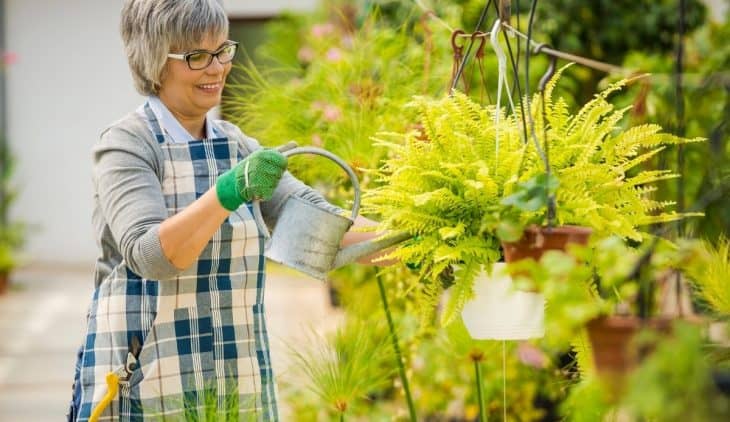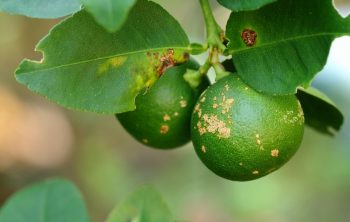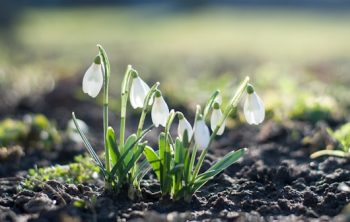Nutrients are essential for the development of plants. If you’re wondering how often you should give your plants nutrients, we will let you know in this article.
Nutrients are supplied to plants to enhance growth and maximize yield. You need to be aware of how often to give your plants nutrients the right way. This way, you don’t predispose your plant to underfeeding or overfeeding which can both be detrimental to your plants’ health.
So, read on to discover how often to feed your plants.
Get To Know How Often To Add Nutes During Flowering
How often you should give your plants nutrients will depend on many factors. Be it manure, worm casting, plant food, etc. fertilization of your plant does not have to be too complex.
In a

However, if you are planting for comprehensive stages such as flowering, maturing of fruits, etc. they will require some nutrient boost.
How To Supply Plant With Nutrients
Always apply fertilizer moderately from the start. The nutrient scheme that follows your nutrients can be followed from the start. Then monitor your plant closely and adjust or apply nutrients as required.
We recommend you don’t totally go by the nutrient scheme given to you by the manufacturers. Some manufacturers may clearly want you to run out of nutrients so you can buy more. As such, their direction may usually be on the high side.
You can begin with half portion or 70% portion that was recommended then continue adjusting or adding more portion as needed.
Also, take note not to apply too much nutrient or fertilizers that are rich in nitrogen. Too much fertilizer which is rich in nitrogen can supply your plants plenty of foliage but minimal fruits or flowers.
Fox Farm Liquid Nutrient Trio Soil Formula – Big Bloom, Grow Big, Tiger Bloom Pint Size
Other Factors When Water Nutes
Other factors to consider on how often you should give your plants nutrients are to consider the stages of their growth and grow medium used.
- For the stages of growth, the younger will demand few nutrients. But as they mature into vegetative, flowering, etc, they will require more nutrients.
- Most grow medium used are usually inert and does not contain nutrients. Thus, it is required to provide them with optimal nutrients.
Can I Water & Apply Nutrient To My Plants?
Watering your plant and applying nutrients to your plant will depend on some factors.
For instance, the size of the container will tell how often you give your plants nutrients whenever you water. The watering requirement for a bigger container is not much. Watering can be done once weekly or once every other week. Therefore, nutrient feeding is required anytime you water.
In a smaller container, watering several times weekly may be required. So, do you apply nutrients every time you water?
It’s okay if you apply nutrients every time you water. All you need to do is to calculate how often you water every week. Then go ahead and portion the nutrients that will last every week you water. This way, each time you water, you supply your plants’ nutrients in the right amounts without overfeeding or underfeeding.
Another alternative is to portion the nutrients into two watering. You have to water and apply nutrients the first two weeks and water only the subsequent week. This way, you give your plant a chance to rest from nutrient applications.
FAQ’s
Should I use nutrients when I water?
Yes, the nutrients are only added when you water your plants. You should not water a plant with nutrients, then add them to the soil afterwards. They will just sit on top of the soil and do nothing. The nutrients are for your plants when they are actively growing. Soak your fertilizers in water before adding to the soil. Your plants will need nutrients at different times during the growing season.
Your plants may need them every week, or once every two weeks. For example, if you plant tomatoes, you’ll want to fertilize with a tomato fertilizer. This will give your plants the nutrients they need when they are actively growing. If you have a lot of young plants, fertilizing every two weeks will be fine. If you have mature plants, you may want to fertilize once a month. The best time to fertilize is when your plants are actively growing. In the fall, it's important to start thinking about fall cleanup. It is tempting to wait until the end of the season to deal with garden debris. That's a mistake, as there are often a few weeks left in the season when fall cleanup can be done successfully. You can do it now, and avoid doing it later when it may be too late to save the season's harvest. Soil moisture is also essential for healthy plants. If soil is dry, plants have to work harder to get water and nutrients.
How often should I feed my plants?
I’m here to tell you that it depends on what you want to achieve. To answer this question, we need to understand the difference between a plant and a tree. A plant needs to grow up into a tree, so it needs to be fed and watered regularly throughout its life.
I've been told that it's not necessary to feed every week, but it is recommended to feed at least once a week.
I don't fertilize the soil, but I do fertilize my plants. I fertilize my plants once a month, usually with fish emulsion. It's not a bad idea to fertilize once a month, though. A good way to find out if you need to fertilize more frequently is to look at your plants' growth. If you see any wilting or yellowing, then you should fertilize more frequently. You can also look at the color of your leaves, and see if they are becoming duller. If they're turning brown, then you should fertilize more frequently. I just use a small bucket with about an inch of fish emulsion in it, and add that to the soil.
How long does it take for fertilizer to work on plants?
Fertilizer should be applied as soon as the soil is ready to receive it. This is usually within a few days of planting but there are some crops that can tolerate waiting longer. There is no specific length of time that will work for all types of plants, it just depends on the type and age of the plant, its growth stage, the amount of fertilizer you're using and how much water the soil is getting.
Should I Use Nutrients Every Time I Water My Indoor & Outdoor Plants
Indoor and outdoor plants’ nutrient requirements differ. Outdoor plants have the opportunity to dive in and search for nutrients in the soil even if the nutrient supply is limited. There is also the additional benefit of rainwater which contains some nutrients and also allows plants to take in nutrients optimally.
However, for indoor plants, there’s no privilege of nutrient-filled rainwater and
Now when it comes to how often you should give your indoor or outdoor plants nutrients, it will solely depend on how your plants are kept, i.e. their condition. But generally, you should always monitor your plant and decipher if they look like they require addition or boost of nutrients.

Eunice is an enthusiastic gardener with a passion for growing beautiful flowers. She loves nothing more than spending time in her garden, tending to her plants and enjoying the outdoors. Eunice has been gardening for over 15 years and has developed a unique style of landscaping that is both practical and aesthetically pleasing. She is especially fond of growing roses and enjoys experimenting with different varieties and colors. Eunice takes great pride in her garden and often shares the fruits of her labor with friends and family. In her spare time, she enjoys reading gardening magazines and attending local horticulture events. Eunice is passionate about her hobby and is always eager to share her knowledge and experience with others.





